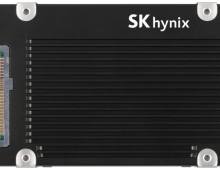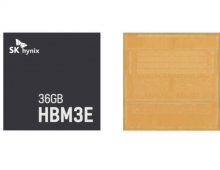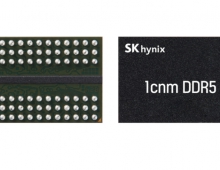
Elpida Lodges Patent Infringement Complaint Against Nanya Technology with ITC
Japanese Elpida Memory, the world's third largest dynamic random access memory maker, today announced two filings of a complaint in two countries against Nanya Technology Corporation for patent infringements.
The first is the filing of a complaint on November 15 in the U.S. International Trade Commission (ITC) against Taiwanese memory chip maker Nanya Technology Corporation and its U.S. subsidiary Nanya Technology Corporation, USA. The ITC complaint cites claims of infringement in which Nanya DRAM products are accused of infringing seven of Elpida's U.S. DRAM patents (No. I 324386: Semiconductor device and method for manufacturing the same, No. 165468: Semiconductor integrated circuit device and process for manufacturing the same, No. 169733: Semiconductor device and method for manufacturing the same, No. I 298540: Semiconductor device and method for manufacturing the same.) Elpida is asking the ITC to issue an injunction to stop Nanya's infringing products from being imported into the U.S. market.
The second is the filing of a complaint on November 16, in Taiwan's Intellectual Property Court against Nanya. The Taiwanese complaint asserts that certain Nanya DRAM products manufactured and sold by Nanya, and modular memory chip products containing Nanya DRAMs, infringe four of Elpida's Taiwanese DRAM product patents. Elpida has asked the Taiwanese court to order a halt to the manufacture and sales of products mentioned in the complaint filed in Taiwan.
Elpida already filed a lawsuit on September 6, 2011 against Nanya in the U.S. District Court for the Northern District of California claiming infringement of four DRAM patents owned by Elpida.
Elpida's parent companies Hitachi and NEC have been investing in Elpida's research and development, resulting to a substantial portfolio of patents owned by the Japanese DRAM maker. Elpida believes that basic fair market practices require that third parties should contribute by payment of fair value for use of Elpida's patents. The company also believes it is fully justified to seek the relief it deserves, including large compensation as appropriate, as a result of Nanya's use of Elpida patents without a license.
According to Seiji Nakashima, Vice President of Intellectual Property Group of Elpida, "Since the filing of the lawsuit in the California court, Elpida sought to engage Nanya and conduct reasonable discussions for the fair payment for Nanya's unauthorized use of Elpida's patents. After these efforts failed, however, Elpida concluded that Nanya has no intention to fairly compensate Elpida for the use of Elpida's patents. As a result, Elpida decided to take additional necessary actions."
The second is the filing of a complaint on November 16, in Taiwan's Intellectual Property Court against Nanya. The Taiwanese complaint asserts that certain Nanya DRAM products manufactured and sold by Nanya, and modular memory chip products containing Nanya DRAMs, infringe four of Elpida's Taiwanese DRAM product patents. Elpida has asked the Taiwanese court to order a halt to the manufacture and sales of products mentioned in the complaint filed in Taiwan.
Elpida already filed a lawsuit on September 6, 2011 against Nanya in the U.S. District Court for the Northern District of California claiming infringement of four DRAM patents owned by Elpida.
Elpida's parent companies Hitachi and NEC have been investing in Elpida's research and development, resulting to a substantial portfolio of patents owned by the Japanese DRAM maker. Elpida believes that basic fair market practices require that third parties should contribute by payment of fair value for use of Elpida's patents. The company also believes it is fully justified to seek the relief it deserves, including large compensation as appropriate, as a result of Nanya's use of Elpida patents without a license.
According to Seiji Nakashima, Vice President of Intellectual Property Group of Elpida, "Since the filing of the lawsuit in the California court, Elpida sought to engage Nanya and conduct reasonable discussions for the fair payment for Nanya's unauthorized use of Elpida's patents. After these efforts failed, however, Elpida concluded that Nanya has no intention to fairly compensate Elpida for the use of Elpida's patents. As a result, Elpida decided to take additional necessary actions."





















